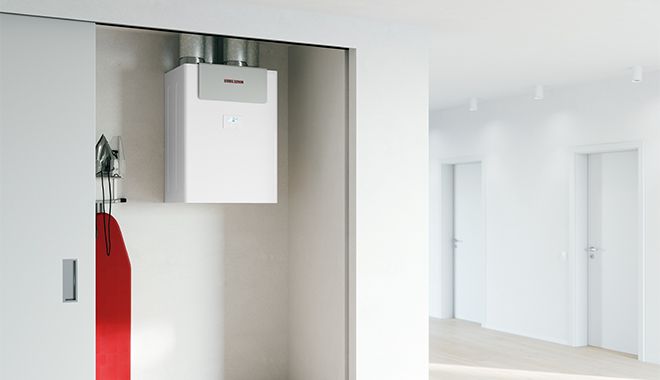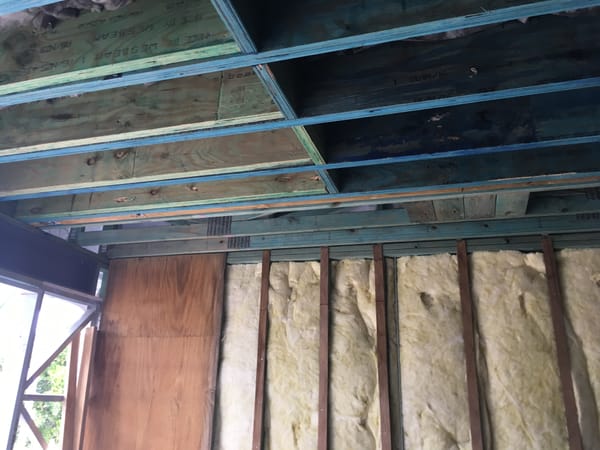Fresh air is a necessity for humans to sustain life. In an ideal world, the air would be free from pollutants. Sadly, this isn't every person's reality.
With our lives largely confined due to career and climate, good ventilation is key to ensure our indoor comfort. So before we get into the benefits of installing a ventilation system in your new home, lets look briefly at what do we mean by ventilation and why is it important.
What is ventilation?
It is important to define what is meant by 'ventilation'. Ventilation involves bringing in fresh, typically outdoor air and removing stale air (through an exhaust system) from a space.
It is important to note that the term “ventilation system” does not mean operating the fans in your en-suite and bathroom. An air exchange system is designed to constantly remove stale air from inside your home and replace it with fresh outside air and this is what we mean when we say “a ventilation system.”
Ventilation is necessary for residential spaces to regulate indoor air quality by diluting and displacing pollutants. Ventilation can be utilised to regulate temperature, humidity, and air movement as well as increase the energy efficiency of your home while reducing energy consumption.
Most of the consideration around using a mechanical ventilation system will most likely centre on the installation costs however I think once you understand how proper ventilation of your home can benefit your health, given how much time we spend at home, I believe their is significant cost/benefit or return to be achieved.
Why is ventilation important?
Working in confined, inadequately-aerated areas is a common occurrence in many workplaces. Prolonged exposure to these environments can have a negative effect on health. The importance of good ventilation in both home and work environments cannot be understated.
Here are 12 benefits to installing a ventilation system in your new home
1. Control impurities
The air quality in urban areas can be low, but it is also important to consider that the air indoors can be more contaminated than outside. A good ventilation system will help expel a build-up of pollutants, bacteria, moisture and unpleasant odours, such as body odour. The materials utilised in the building of your new home have an effect on the air quality.
2. Stop Condensation
Condensation can lead to the growth of mould and damage to surfaces, as well as allergic reactions and respiratory problems for those living in damp conditions. Effective ventilation systems can be used in order to minimise these risks.
3. Reduce temperatures, increase comfort levels
When many people congregate in a small area, such as for work, meetings, or gatherings, the temperature and air quality can become uncomfortable. Having adequate ventilation in a room will enhance the comfort and productivity.
4. Less Condensation Equals A Cleaner Home
Installing a home ventilation system provides the benefits of increased air circulation. Ceiling fans do a good job of moving air, but continuous airflow prevents condensation from accumulating.
Moisture is removed from your home, reducing the risk of mould and mildew growth in damp areas. Reduced mould spore concentrations in your home can reduce the risk of irritated sinuses or other breathing complications for you and your family.
5. Fresh Air Equals Less Odours
A ventilation system recycles the air in your home. Air is exchanged, with stale air removed and fresh air supplied. Ventilation of your house expels unpleasant odours and gasses that have accumulated.
Having a garage close to the home or using gas-based appliances can present an additional health consideration due to the potential risk of carbon monoxide and radon gas leakage. An air ventilation system works in the background and will quickly disperse odours from inside the house.

6. Ventilation Can Save You Money
Proper ventilation in a home can provide comfort during both cold and hot seasons. During summer, hot air is expelled from the home to maintain freshness.
Good ventilation helps reduce condensation, making it easier to heat up your home. Additionally, keeping bulk insulation (within walls) dry further aids in heating the home. Ventilation systems are advantageous, providing improved indoor air quality and potentially reducing the amount of additional cooling or heating required.
7. Regulates air flow in your home
Adequate ventilation in your home is essential. Proper ventilation promotes air movement inside and outside of your home, which then brings fresh air into the interior and eliminates stale air.
8. Helps to control household temperature
During the summer months, houses can provide relief from the weather or create a humid and stuffy living environment. A home with adequate ventilation provides a comfortable living environment, contributing to relaxation by regulating the temperature.
9. To make a healthier living environment and reduce asthma
Asthma can be triggered by damp and mouldy conditions.
High humidity levels in homes without adequate ventilation systems can provide an ideal environment for the breeding of dust mites. Poor ventilation in homes can create an environment conducive to dust mites and their by products.
The debris released by these organisms can cause allergic reactions, such as asthma attacks, eczema, watering eyes, itching, and runny noses. Installing an effective ventilation system may reduce the severity of related issues and some asthma sufferers have reportedly experienced immediate relief.
10. To help alleviate symptoms of hay fever
During the summer months, hay fever symptoms can be experienced by many people. A ventilation system can effectively remove larger particles, such as pollen, from the air in the home.
Having a ventilation system in place eliminates the need to open the window, which can be beneficial for people with pollen allergies. Installing a ventilation system may help to create a more comfortable environment during summer.
Providing a steady stream of clean air into the home can reduce pollutants in the indoor environment, which in turn has health benefits.
11. To lessen the impact of VOCs
Volatile Organic Compounds (VOCs) are invisible gases that can cause health issues when present in the home environment. It has been estimated that there are up to 900 chemicals present in indoor air, and inadequate ventilation can increase potential adverse effects.
According to the Environmental Protection Agency, indoor air pollution can be up to 70% higher than outdoor air pollution.
Volatile Organic Compounds (VOCs) can originate from various sources, such as cosmetics, air fresheners and paint products. Performing certain activities such painting and cleaning may result in VOC levels that are 1,000 times higher than outdoor background levels.
Home owners can safeguard their property and households by having an efficient ventilation system fitted that allows fresh air to be introduced from the outside and will reduce VOC concentrations inside the residence.
12. They are cost effective and more efficient to run
Investing in an air ventilation system combined with energy efficient building materials and ceiling fans is a more cost-effective way to build a home than relying on mechanical ventilation systems, such as ducted air conditioning. Air conditioners have high running costs and are not very energy efficient.
The performance of an air conditioning system is affected by factors such as external ambient temperature, which may increase energy consumption to achieve desired indoor conditions. Air ventilation systems typically operate at a low noise level while continuously exchanging stale indoor air for fresh outdoor air.
Air ventilation system examples
Stiebel Eltron air ventilation products are well regarded.
Stiebel has had a long history of producing cost-effective and energy-efficient systems in Europe. They recently ( a few years ago now) expanded to Australia.
When selecting an air ventilation system, factors such as the air volume of your home should be taken into account.
Here are some examples of the Stiebel Eltron Air Ventilation systems available for you to choose from LINK TO STIEBEL AUSTRALIA
Conclusion
Your builder may not inform you of the cost-effective option of installing an air ventilation system in your new home, but it can help improve the air quality in the long-term.
Knowing this before you start building allows you to specify to your builder that an air ventilation system be installed.







